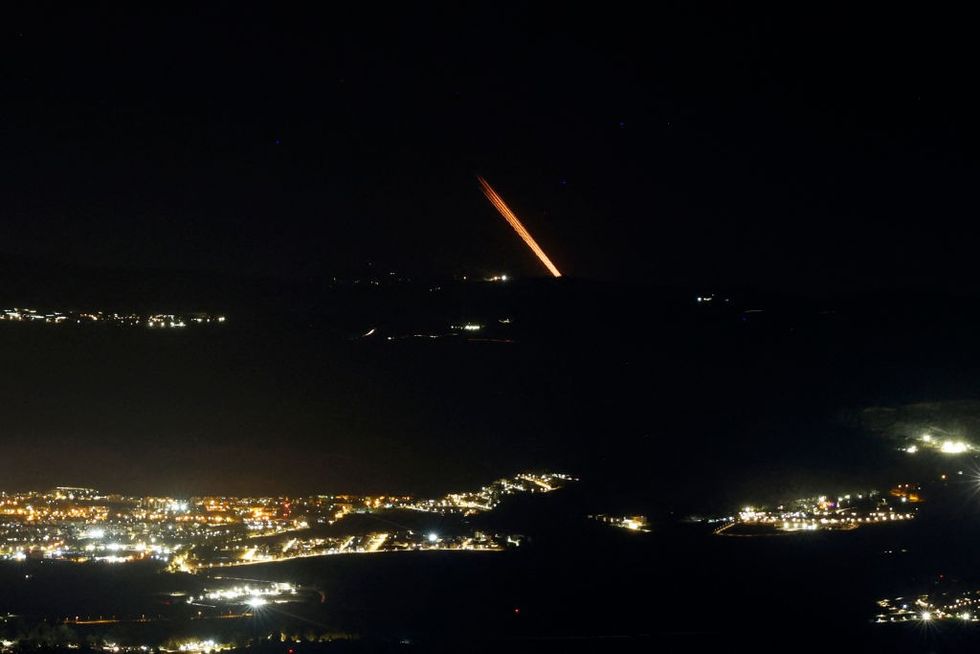A Hezbollah rocket has hit Israel's main airport as the group unleashed 120 projectiles from across the Lebanese border.
Getty
Sirens sounded out in the east of Israel this afternoon
Don't Miss
Most Read
Trending on GB News
A Hezbollah rocket has hit Israel's main airport as the group unleashed 120 projectiles from across the Lebanese border.
Ben Gurion Airport was struck during a heavy barrage while the IDF worked to intercept the initial wave of rockets, the military has reported.
Flights were delayed and disrupted due to the attack.
Hezbollah claim it was aiming at the IDF’s Tzrifin base - which is located south of the airport.
 A Hezbollah rocket has hit Israel's main airport as the group unleashed 120 projectiles from across the Lebanese border.Getty
A Hezbollah rocket has hit Israel's main airport as the group unleashed 120 projectiles from across the Lebanese border.GettyFragments from an intercepted rocket struck a car park in Ra'anana - 13 miles from Tel Aviv's airport.
The IDF said sirens sounded east of Tel Aviv this afternoon after a single rocket was detected and intercepted.
The military reported that a total of 120 projectiles were launched from Lebanon today.
According to Israel Airports Authority, the airport is now "open and working normally for arrivals and departures".
Pictures of the aftermath show rocket debris on top of a parked car.
The latest barrage follows months of clashes between Israel and Hezbollah, an Iranian-backed group operating from Lebanon.
Hezbollah has fired rockets into Israel since Israel's campaign in Gaza began, aligning with Hamas.
With rising tensions along the northern border, Israel has escalated its strikes in Lebanon to counter Hezbollah and create conditions for tens of thousands of displaced Israelis to return to their homes and jobs in northern Israel.
Hezbollah's strikes came just an hour after Israel issued evacuation warnings for three areas of the Hezbollah bastion.
The National News Agency said: "Enemy warplanes launched nine strikes on Beirut's southern suburbs."
Israel's army said it hit "Hezbollah targets" in the area including "command centres, weapons storage facilities, and terrorist infrastructure".
The Israeli military later announced: "A short while ago, the IAF (air force) intercepted a projectile that crossed from the central Gaza Strip into the area of Kissufim in southern Israel. Sirens sounded in accordance with protocol."








